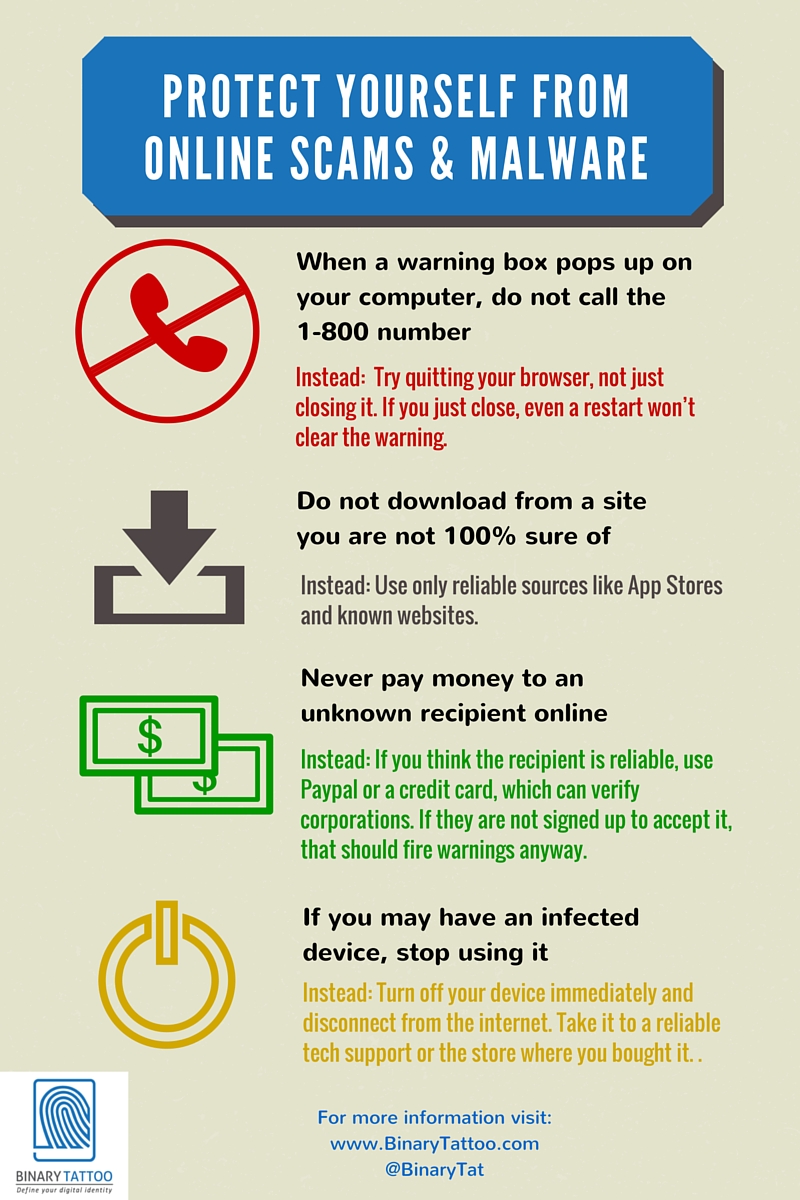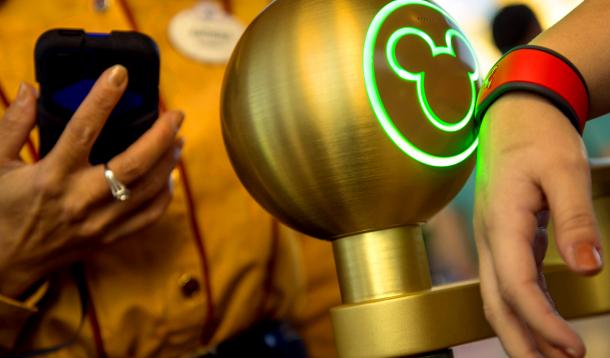
It was a dark and rainy evening when I got a frantic message to my device. It was one of our YMC bloggers. To protect the innocent, she has herein asked to be known as Ivanna Newpassword. Ivanna was in a panic. She was working on her Mac when she suddenly got a pop-up box saying that her software was infected and she needed to call the provided 1-800 number immediately. The box was accompanied by a beeping sound, the kind of repetitive ancient torture designed to break anyone. The box would not go away. The sound was relentless. Ivanna called the number.
The woman on the other end of the phone was very reassuring. She told Ivanna she could help solve the problem if she would grant the support company access to her computer. Thank goodness! Help was here.
Ivanna obliged. She was given a website to visit and was asked to download software to her computer. The support woman then took over Ivanna’s computer, analyzing it with lovely graphics and showing just how infected it was. Finally, the support woman asked for Ivanna’s credit card number so she could install the needed software to fix the computer.
It was here that Ivanna clued in that something was afoot. She declined the software and the support woman got upset. Suddenly, like the flashback scene at the end of a good movie, Ivanna realized what she had just done. She gave this woman access to her entire computer. Oh. My. God.
That’s when she called me. Though impossible to tell the damage over the phone, I had her disconnect her computer from the internet and close down the computer. I also suggested she log on to her email and bank accounts from a different computer and change the passwords. Having someone in your computer is like coming home after a week’s vacation to find out you didn’t lock the front door. How many people were in here? What did they touch? What did they see? What personal files did they riffle through? Did they bug the house?
When a criminal or hacker creates software for you, it is either because they want to damage your data or, more likely, they are looking for ways to get your money. If you download something malicious, it could fall in to these categories:
Malware – Short for ‘malicious software’, malware is the overall term for any software that you have on your computer/device which does something you didn’t intend it to do. It may steal your information or destroy it. It could turn on your camera or microphone to record you. It is usually disguised as something else or hitches a ride with legitimate software that you download. It is often downloaded from email attachments.
Spyware – This type of malware acts as spies do, by sitting silently on your computer watching and recording. It may log all of your keystrokes so that it can learn your passwords to other accounts. It may track your internet browsing habits. It typically sends that information back to an external source.
Ransomware – One of the newest kinds of malware, Ransomware locks your computer and charges you a ransom to unlock it again. To ensure that you don’t just trade in your device, they often steal private or personal information for bribery. The biggest case was a free porn site in the UK that secretly recorded people while they watched the porn. The scammers then ransomed the devices with the videos of the user.
Ivanna made an appointment with the Apple store for the next day to have someone look at her device in person. Turns out she was lucky. The Apple tech support analyzed her computer and deduced that the software she’d downloaded granted access to her files but nothing else. The end goal for the scammers in this story was to get Ivanna to buy the software. This said, they had access to and may have copied every file on her computer.
Let this be a cautionary tale and do not be like Ivanna! Using some basic anti-virus or anti-malware software is definitely a great idea. That said, make sure you are still taking measures to keep yourself safe.

![]() RELATED: How To Spot An Email Scam
RELATED: How To Spot An Email Scam

Recently I had the privilege of visiting Disney World in Orlando with my family – or maybe the word ‘privilege’ depends on how much one likes to stand in long lines. No matter, we thought our school-aged kids would love the trip so started some research and booked online just over two months in advance. Shortly after booking I began to get a barrage of emails from Disney about all the services I could take advance of, ahead of time, by using their online portal. It was so easy. All I had to do was create an account...
The slick Disney website offers information on everything from hotels to dining to rides. Though many people just ‘show up’ to Disney World, there are advantages to those who do their research ahead of time and get things pre-booked. Some character dinners even require reservations 365 days in advance of your trip. I opted to create a 'My Experience' account for our family to manage our schedules. To do this I needed to input the names and ages of everyone in my party. And so began my mass transfer of personal data to Disney. In fairness, it was a well propositioned trade – they get to know a lot about us and we get the advantage of booking an easier trip.
Disney Data Count: Names, Ages, and Genders of all my party members. Travel dates, hotel reservations. Home address.
The original FastPass was a system whereby visitors to the Disney parks could grab paper tickets for a ride that would allow them to return later in the day with a shorter line-up. Though this worked for some crowd control, there was no tracking on who had what ticket. Recently Disney upped their game with FastPass+. In the new system, visitors could book their FastPass tickets online up to 60 days in advance. You could pick the time for each pass and were guaranteed significantly smaller line-ups. We were limited to three rides per park so I combed the blogs, found the rides that needed fastpass tickets and booked them all. I still remember my husband questioning all the research I was doing, but anyone who has been to Disney knows it makes sense to pick your rides carefully. Popular rides are emptier at opening but by 11am they are all packed. Oh, and the research and planning *did* pay off.
Disney Data Count: intended itinerary for parks, ride preferences for our family.
We have become accustomed to key cards to enter hotel rooms and wristbands for theme parks or resorts. I was not surprised to see Disney had introduced a bracelet that did both. The Magic Band was touted as greatest thing since sliced bread, and it kind of was. Each bracelet allowed the user to open hotel doors, get into theme parks, use FastPasses and even make purchases. It was the only thing you needed to carry. Through the website they even allowed us to customize colours and names per person, which my kids were over the moon for.
The Magic Band uses RF technologies, which communicate where the band is located in the resort and detect when the band is held very close to a payment terminal, a room lock or a park access point. The only information that needs to be stored on the band is an identifier. The rest of the information is stored in the company’s databases. To be clear, the band itself does not have your credit card data nor is it a GPS device.
Disney Data Count: credit card numbers, colour preferences

Here’s where it got interesting. Upon check in we were each given our Magic Bands to wear. I instantly began to appreciate it. No fumbling for room keys, tickets or even your wallet. It is convenience at its best. That’s probably why I let my guard down and stopped considering the amount of data it was gathering… until I went for lunch at the Be Our Guest restaurant.
Inside Magic Kingdom, Be Our Guest is a large cafeteria-like restaurant in the style of the Beast’s castle from Beauty and the Beast. It holds 500+ people. When you enter the restaurant you are handed a menu and put in a line to order and purchase your food. Once you have made your selection and paid, you are invited to sit *anywhere* in this huge area. Minutes after you have selected a table, your food magically shows up. “Magically." At least that’s what Disney says. it suddenly hit me that they knew exactly where we were based on our bands. I had a flashback scene in my head of every other thing it also know: which rides we went on, what food stands we stopped at, and even how often we went to bathroom.
Disney Data Count: parks visited, path through the parks, rides visited, and length of line-ups. Food purchased, shows attended, gift shop visits, breaks, meal times and bathroom stops. Time in and out of hotel rooms.
Imagine the number of inferences Disney can now make based on this data! What rides do people do after lunch vs end of day? What age and gender of kids like thrill rides and princesses? Where are people spending too long in bathroom lines? The quantity of conclusions to be drawn is far greater than the raw data – hence the Big Data.
Ultimately Disney’s goal is to optimize the park so patrons stay happier and thus likely to spend more money. The end result is a win on both sides. Plus, in the event of a lost child, they can be identified by their band and reunited with parents when they near a terminal themselves.
Hats off to the engineers and data analytics experts at Disney for a rather impressive example of how Big Data can be used. I would use their tech again in a heart beat. But if you are trying to stay off the grid, Disney may not be the place for you.